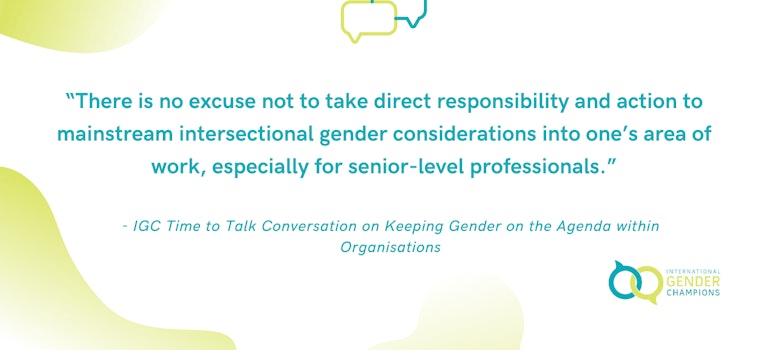On 29 June 2021, six Champions from International Organisations and Civil Society in the Geneva and Den Haag hubs came together to discuss how to keep gender on the agenda within organisations.
Champions shared various best practices and lessons learned in their efforts to mainstream gender into their diverse sectors and areas of expertise, unanimously emphasizing the universal applicability of a gender lens to all areas of work.
Some key points discussed included:
- Walk the talk – take action to make gender equality a reality within your sphere of influence, however large or small that sphere of influence may be.
- Strategy and policy must be developed as a framework to support gender mainstreaming; accompanying these with an action plan with concrete targets, indicators and monitoring mechanisms is crucial.
- Numbers are a good place to start for greater parity and diversity, but it is imperative to go further, to foster empowerment and to close the leadership gap.
- Diversity, equity and inclusion must also lead to a sense of belonging, both the most difficult to measure and most telling indicator of success.
- The Demonstration Effect: letting empirically recorded higher performance data speak for itself within diverse and genderbalanced teams can one of the most powerful ways to make the case for mainstreaming gender intersectionally within organisations and other fora.
- Unconscious biases exist in everyone; honest conversations to call them out is the only way to foster awareness and deconstruct them.
- “Building back better” postpandemic provides a great opportunity to improve organizational cultures internally to be more inclusive and flexible.
All Champions agreed that in order to successfully mainstream gender and intersectional considerations within organisations, it is important to push back against resistance and continue to implement policies, strategies and advocate. These actions become norms, and once socialized these norms become values that translate into culture and enable inclusive environments both at work and in the home.

